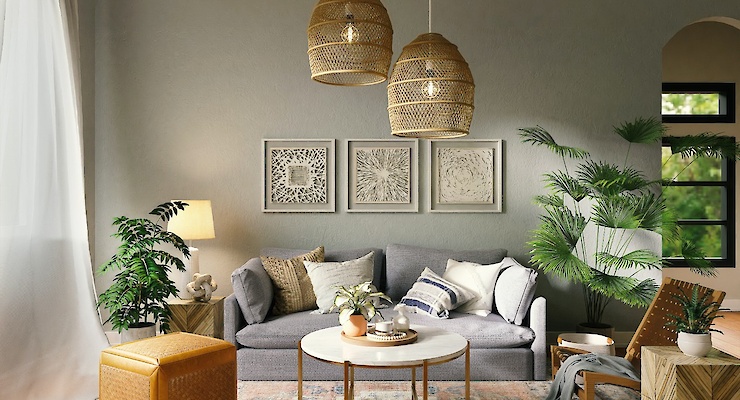


Head of Content

Mortgage Advisor & Director

Devout Muslims can face additional challenges when it comes mortgages as Islam forbids receiving and paying interest. Luckily there are Sharia-compliant alternatives to fall back on, and here you can learn all about them.
What is an Islamic mortgage and how do they work?
An Islamic mortgage is a Sharia-compliant alternative to a traditional mortgage that enables devout Muslims to purchase property without taking on an interest-bearing loan.
Technically speaking, they aren’t really ‘mortgages’ in the traditional sense. It would be more accurate to call them ‘home purchase plans’, and there are several types available.
All of them function similarly and are based around the same concept: an Islamic mortgage lender purchases the property on the applicant’s behalf. While the lender is the legal owner, the applicant makes rent payments that partly go towards buying out the owner’s stake.
At the end of the term, the applicant will either have full ownership of the property, or chipped away at the purchase price enough to buy it with a lump sum payment.
Types of Islamic mortgages
There are three types of halal home purchase plan that serve as mortgage alternatives:
- Ijara: Borrowers make monthly payments that are part rent, part capital purchase. The amount payable remains consistent throughout the term.
- Murabaha: A type of no-interest purchase plan that is more commonly used for buying investment properties. The lender buys the property on the client’s behalf and sells it to them at a marked-up price, which is payable in monthly instalments.
- Diminishing Musharaka: A joint agreement between the borrower and the lender in which the lender’s stake in the property diminishes each month as the client makes monthly payments to increase the share they own, up to the point of full ownership.
Islamic mortgages can be complex, but help is available. Our advisors can match you with lenders who specialise in this type of finance - speak to one of them here.
Eligibility criteria
Sharia-compliant home purchase plans typically have the following criteria:
- Deposit requirements: Most lenders will ask for at least 15-20% of the property’s value as a deposit. The more you put down, the lower your monthly payments.
- Property usage: The property cannot be used for activities prohibited by Islam, like the sale of alcohol, which may be relevant for Murabaha investment agreements.
- Credit history: Most lenders will expect applicants to have a good credit history, but what qualifies as “good” is usually determined on a case-by-case basis.
- Property location: Some Sharia lenders will only enter a home purchase plan with applicants who are based in England or Wales (some are England only).
If you fall outside of this criteria, don’t panic. Our advisors can match you with a range of alternative Islamic finance providers who might be able to help.
How affordability is calculated

Most Sharia-compliant finance providers would be willing to purchase up to 85% of the property’s value on your behalf, as long as this stake is equal to 4.5 times your salary. One or two lenders might be flexible on this and let you borrow a higher amount.
There are a few other points to bear in mind when calculating affordability. Firstly, you will need to foot the additional costs involved in the homebuying process yourself. They include surveys, home insurance, stamp duty, broker fees and other charges.
Moreover, some Islamic lenders have minimum and maximum loan amounts, typically between £75,000 and £5 million, and minimum income requirements of £15-25,000.
How to get an Islamic mortgage
Follow the steps below to get your Islamic mortgage application off on the right track:
Do your research: Explore the three different types of Sharia-compliant purchase plans to get an idea of what’s available. You should also do some rough affordability calculations, bearing in mind that terms lengths of up to 40 years are available. The longer the term, the lower your monthly payment are likely be.
Check your credit reports: Islamic mortgage alternatives usually require good credit, so check your credit reports before you start. You can download them by accessing a free trial with Checkmyfile. Review them for inaccuracies and outdated information, and ask the credit reference agencies to remove these errors immediately.
Speak to a broker: Our brokers know exactly which lenders specialise in Sharia-compliant home finance. They have working relationships with these providers and can match you with the best one for you - get started here.
Which lenders and rates are available?
There are only a handful of lenders available for Islamic mortgage alternatives. You will need to apply through a broker, such as Teito, to access the majority of their products.
Sharia-compliant home purchase plan providers currently available include:
Rather than paying an interest rate on the finance the lender is providing, you will pay a “rental rate”, i.e make monthly rental payments based on the size of the capital.
Current rates at the time of writing (May 2024) start at just over 6% and can reach over 7%. The more deposit you can put down, the better your chances of landing a lower rate. Rates are also determined by the London Inter-Bank Offered Rate (LIBOR).
Most Islamic finance providers offer fixed-rate home purchase plans where the rate you pay is locked in for a set number of years, typically 2, 5 or 10 years.

Get matched with an Islamic mortgage lender today
Advantages and disadvantages
The table below shows the advantages and disadvantages of Sharia mortgage alternatives:
Advantages | Disadvantages |
Provides home-buying options for Muslims who wish to adhere to Islamic law | Upfront costs to pay including stamp duty and conveyancing, even though clients won’t own home until end of agreement |
Client can sell the property at any time and may profit if its value has gone up | Risk of losing your home if the lender you are co-owning with goes bust |
Islamic lenders sometimes charge less in rental payments than landlords would on a standard rental agreement | Can be more expensive than mortgages as rental rates can be higher than mortgage rates, and fees can be higher too |
Get matched with an Islamic mortgage lender
Our mortgage advisors know exactly which lenders are best placed to offer Sharia-compliant home purchase plans, and can match you with the provider who is the best fit for you.
We have deep working relationships with these lenders, most of whom can only be accessed with the help of a mortgage advisor, such as Teito.
Get started here to arrange a free, no-obligation with an advisor who can match you with your ideal Islamic mortgage provider today.
FAQs
Yes. There are Sharia-compliant alternatives to buy-to-let mortgages called ‘Acquisition and Rent’ agreements and ‘Rent Only’, which is the equivalent of interest-only borrowing.
These financial agreements work in the same way as residential home purchase plans, with the lender buying the property on the client’s behalf, although criteria can be stricter.
Choosing an Adviser
Selecting a qualified and experienced mortgage adviser is of great importance. To choose a suitable adviser, evaluate their qualifications, experience, and reputation, and ensure they are regulated by the Financial Conduct Authority (FCA).
Read reviews from previous clients and make sure they provide a clear explanation of the products and services they offer, as well as the fees and charges associated with them.
Last updated 7 May 2024





























































